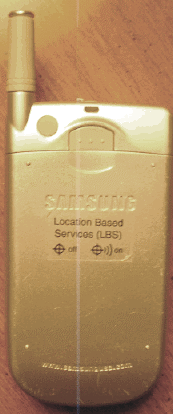
Given that most cell phones will be coming with more sophisticated location-enabled technology embedded in the phone so that emergency phone calls can be located, part of your personal location privacy can be determined already.Mr.Spinney's articles notes that opt-in "buddy-finder" location services are available from Bell Mobility's MyFinder, TeliaSonera's Friend Finder, and AT&T Wireless' Find Friends.In addition, he comments that, "Personal subscriber-level privacy was a huge information technology (IT) task to tackle for wireless carriers that adopted an internal application model and strategy. Regardless of whether they confronted the job through their own internal engineering efforts (e.g., AT&T) or by purchasing privacy management IT, such as a location-enabling server, they have done it. And because they have accomplished the task, I would argue that the privacy issue does not warrant the paranoid press attention it receives. Nonetheless, the majority of the U.S.public is concerned about privacy, 'and we need to speak to privacy concerns by educating the mass-market public that their concerns have been addressed,' as Brian Wilson, AT&T Wireless, put it."
Mr.Spinney's entire article will appear next month.In today's feature article, Steve Lombardi declares that much depends on age.Whereas my generation (excuse me, the "over 40" crowd) may not have the same comfort level with location privacy, the "20 somethings" have no such angst.With IM, SMS, and the NTT DoCoMo's iMode crowd, he may have a point."Location is a key bridge between anonymous, impersonal messaging, and warmer 1-1 communication that results from feeling connected.We connect on a better level with someone when they go from being at a random point on Earth, to knowing they are in Georgia. Atlanta.Near Olympic Park.Location helps us feel attached even when we are in Washington.Seattle.Near the Science Center."
This is not to say that location privacy should not be a concern.But just as we have become comfortable with allowing some of our person information become public via the web, we also need to be vigilant against those who would pirate our location for criminal purposes.We hope you will explore this topic further and feel free to send your comments to us as well as the authors.